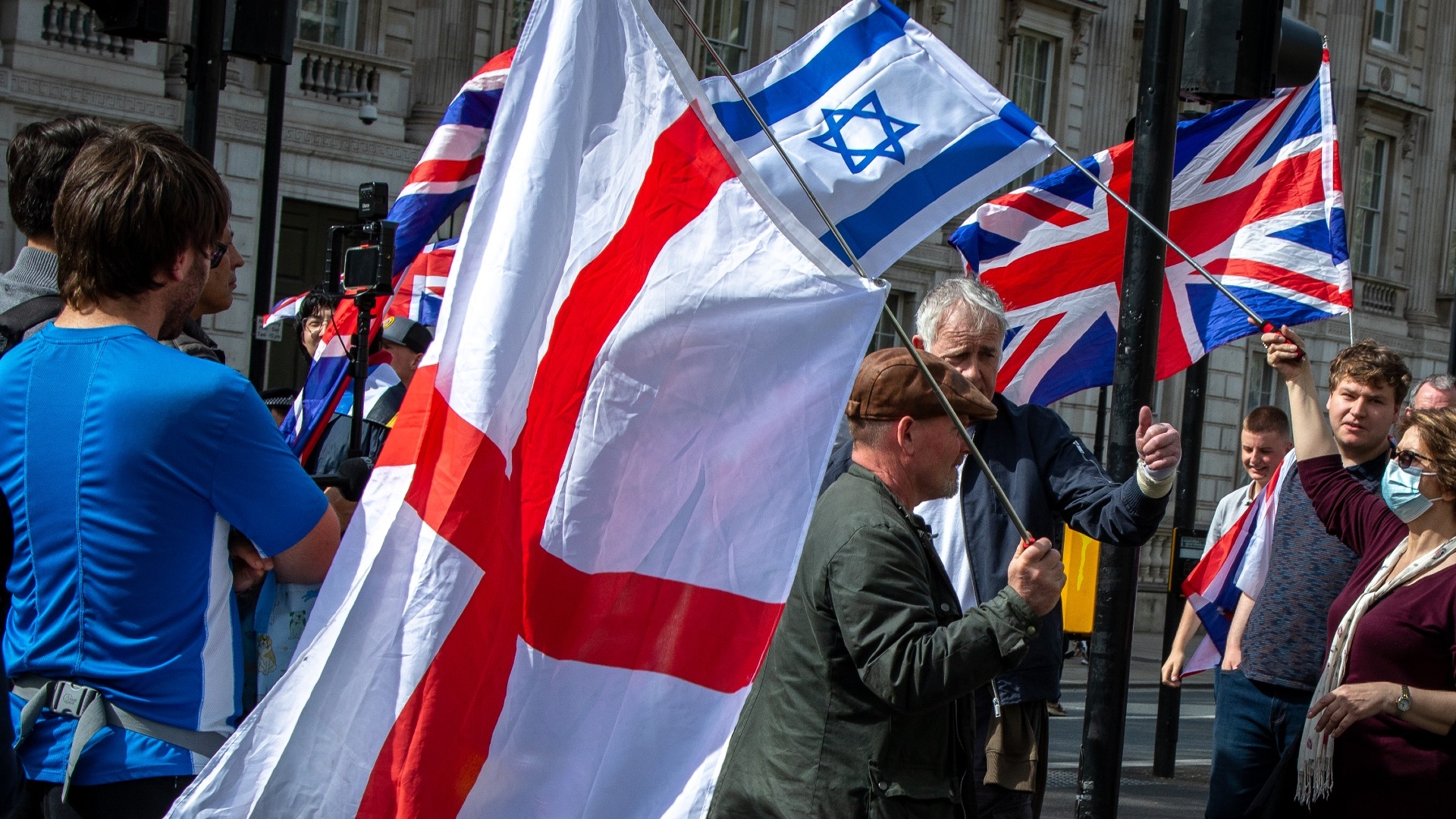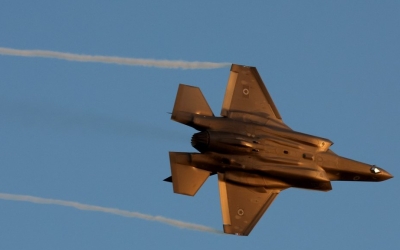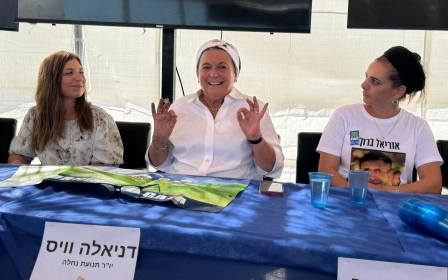Britain not reviewing Israel's conduct in Lebanon for arms export decisions

The UK government says there is “no legal requirement” to assess Israel’s compliance with international humanitarian law in its military conduct in Lebanon as part of its decision-making on licensing UK arms exports to Israel.
Middle East minister Hamish Falconer said on Monday that the suspension of 30 arms export licences to Israel last month means there are “no existing UK arms licences to Israel for use in Lebanon” apart from UK-made F-35 fighter jet components.
“So there is no legal requirement to assess [international humanitarian law] compliance,” Falconer said in response to a written question from Labour MP Abtisam Mohamed.
Arms control experts and human rights advocates were surprised by the admission which several said appeared to show that the government had decided to forgo international law.
"Under its legal obligations, the UK government cannot refuse to do IHL assessments for any of its arms export licences," Martin Butcher, policy adviser on arms and conflict for Oxfam told Middle East Eye.
New MEE newsletter: Jerusalem Dispatch
Sign up to get the latest insights and analysis on Israel-Palestine, alongside Turkey Unpacked and other MEE newsletters
Butcher said all exports are subject to risk assessment without exception, unless already prohibited under an article of the Arms Trade Treaty.
"Doing IHL assessment in Lebanon is a key part of that," he said. "The government seems to be exempting itself from international law."
'Under its legal obligations, the UK government cannot refuse to do IHL assessments for any of its arms export licences'
- Martin Butcher, Oxfam
Neil Sammonds, a senior campaigner at War on Want, said the move was "typically exasperating, even slippery, from the UK government on so many levels".
"Not only did the previous UK government give Israel a green light, but the current one did too, [as] this minister's statement conveys, to commit atrocities with impunity wherever it wants."
Jonathan Purcell, senior public affairs officer with the International Centre of Justice for Palestinians (ICJP), said F-35s, used to commit daily massacres in Gaza, are now "being used to destroy Lebanese residential buildings".
"Even besides F-35 parts, Falconer should make public any assurances he has been given that UK-made arms are not being used in Lebanon," Purcell said.
"The government cannot exempt itself from international humanitarian law assessments simply because it fears the conclusions they would reach."
'Clear responsibility'
A group of British and international NGOs, including Oxfam, War on Want and ICJP, called on the UK government earlier this month to impose a total arms embargo on Israel given its escalated bombing and ground invasion of Lebanon.
Over the past month, at least 1,470 people have been killed and 1.2 million people displaced in Lebanon in what Prime Minister Najib Mikati has said is potentially the worst displacement in the country’s history.
The NGOs said they were particularly concerned over the government’s continued licensing of UK-made F-35 components which make up 15 percent of the fighter jets which experts say Israel has relied upon in Gaza over the past year and is now using to bomb Lebanon.
The government suspended export licences for F-35 components being sent directly to Israel in September over concerns they could be used in the violation of international humanitarian law in Gaza.
But the government said it could not suspend components headed to third countries, and eventually to Israel, without undermining the global F-35 programme which it says is crucial to wider peace and security.
Specifically, Foreign Secretary David Lammy told parliament, it would be difficult to track the UK-made components across multiple supply chains involving more than 20 countries.
Currently, this is true. A spokesperson for the F-35 Joint Programme Office has told MEE that the F-35 supply chain was capable of "controlling material movement based on part number/configuration" but that no system was in place to do so.
Butcher said on Monday, just as the government is required to do risk assessments for all exports, it also must find a way to follow its legal obligations if it continues to send the components indirectly.
"If there is an assessment that F-35 parts cannot be directly sent to Israel because of clear risk of serious violation of IHL, then allowing parts to be sent indirectly is not lawful either," he said.
"It is up to the government to find a way to supply Nato and other partners through the global F-35 supply while applying end-use conditions in order to prevent F-35 parts reaching Israel."
Among his concerns, Sammonds said was the lack of clarity about which licences the government had suspended and which are ongoing, and fears that UK-made components suspended recently have already made it into fighter jets, helicopters and drones "involved in multiple likely war crimes now being carried out across Lebanon".
'The government is doubling down on its position to allow Israel to continue to use the single most significant set of weaponry it receives from UK companies'
- Anna Stavrianakis, Shadow World Investigations
"The government has a clear responsibility to monitor how they are used," he said.
Anna Stavrianakis, director of research and strategy at UK-based Shadow World Investigations, said Falconer's response raised even more questions for her about how the government is applying its own arms export rules.
"How does the government know that weapons sent to Israel are or aren't 'for use in Lebanon'? What end-use undertakings is the government receiving to be sure this is the case?" said Stavrianakis, who is also a professor of international relations at the University of Sussex.
"We also know that Israel is indeed using F-35 combat aircraft in Lebanon. Yet rather than assess the credibility of the F-35 exemption against this escalation, the government is doubling down on its position to allow Israel to continue to use the single most significant set of weaponry it receives from UK companies."
Middle East Eye delivers independent and unrivalled coverage and analysis of the Middle East, North Africa and beyond. To learn more about republishing this content and the associated fees, please fill out this form. More about MEE can be found here.





